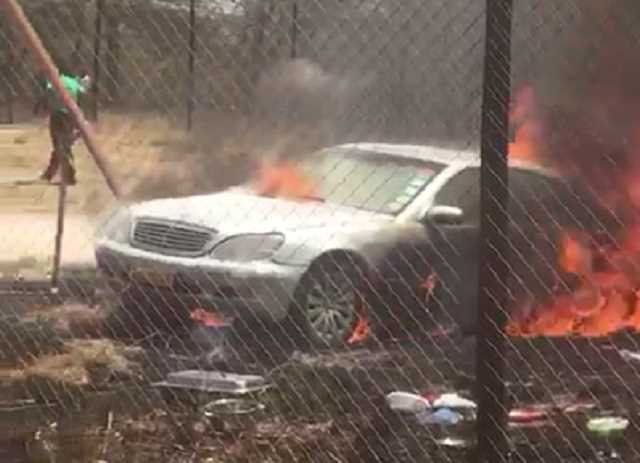
Michael Mashiri
Cars grant us freedom and convenience, but a hidden danger lurks beneath the hood: the ever-present threat of car fires. These infernos can erupt unexpectedly, even without a collision, posing a serious threat to drivers and passengers alike. To navigate the road safely, let’s delve into the causes of car fires and equip ourselves with essential knowledge to prevent and manage them.
Several culprits conspire to ignite car fires. “Mechanical gremlins,” as mechanic Tinashe Sumaili warns, “like overheated engines or worn-out parts, can spark flames.” Fuel leaks, often caused by punctured tanks or loose connections, create flammable puddles waiting for a spark. “Loose connection to the fuel supply,” mechanic Tanaka Chogo explains, “might cause a shot on cars...” Electrical demons, in the form of faulty wiring or overloading, can unleash dangerous sparks. Sadly, even “deliberate acts of arson,” as Boss Kedha, another mechanic, mentions, can turn a car into an inferno.
The best defence against car fires is a proactive approach. “Regular check-ups at the mechanic,” Sumaili emphasises, “can unearth hidden problems before they ignite.” By familiarising yourself with the warning signs, like smoke, strange smells, or engine overheating, you can pull over and investigate at the first hint of trouble. Remember, “early detection is crucial,” as Sumaili reiterates, “in preventing a full-blown blaze.”
Related Stories
Even with precautions, a car fire can erupt. In such moments, staying calm is paramount. Pull over safely and get everyone out of the vehicle as quickly as possible. Unbuckle your seatbelt first, then assist others. If you have a fire extinguisher, aim it at the base of the flames and sweep back and forth. Remember, your safety is paramount. Move away from the car to a safe distance and “call emergency services immediately,” as Sumaili advises.
Equipping your car with a fire extinguisher and knowing how to use it can be a lifesaver. Consider keeping a window breaker in your first-aid kit to escape quickly in case you’re trapped. After a fire, stay hydrated, as smoke inhalation can irritate your throat.
By understanding the risks and taking preventative measures, you can significantly reduce your chances of experiencing a car fire. Make regular maintenance a priority, stay vigilant for warning signs, and “know what to do in case of an emergency,” as Sumaili urges. Let’s drive responsibly and prioritise car safety to keep ourselves and our loved ones protected on the road.




















Leave Comments